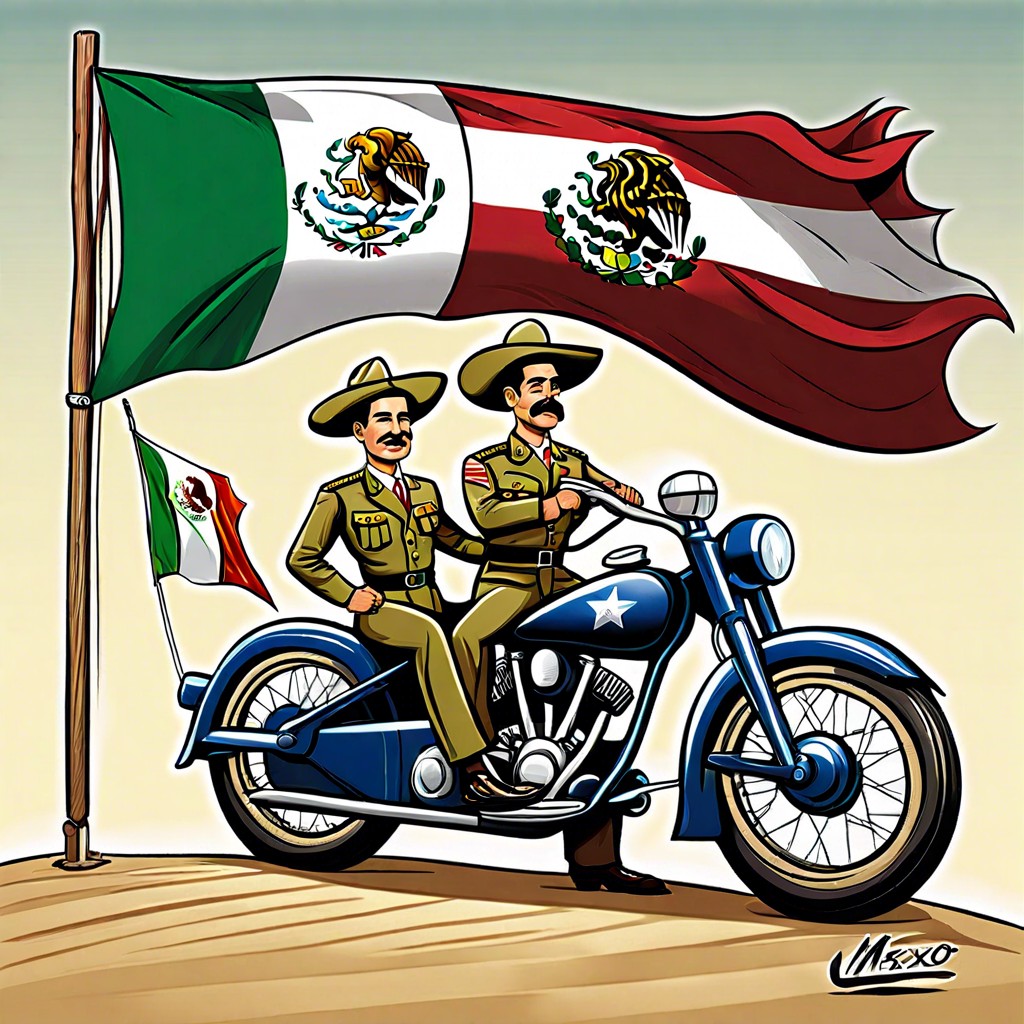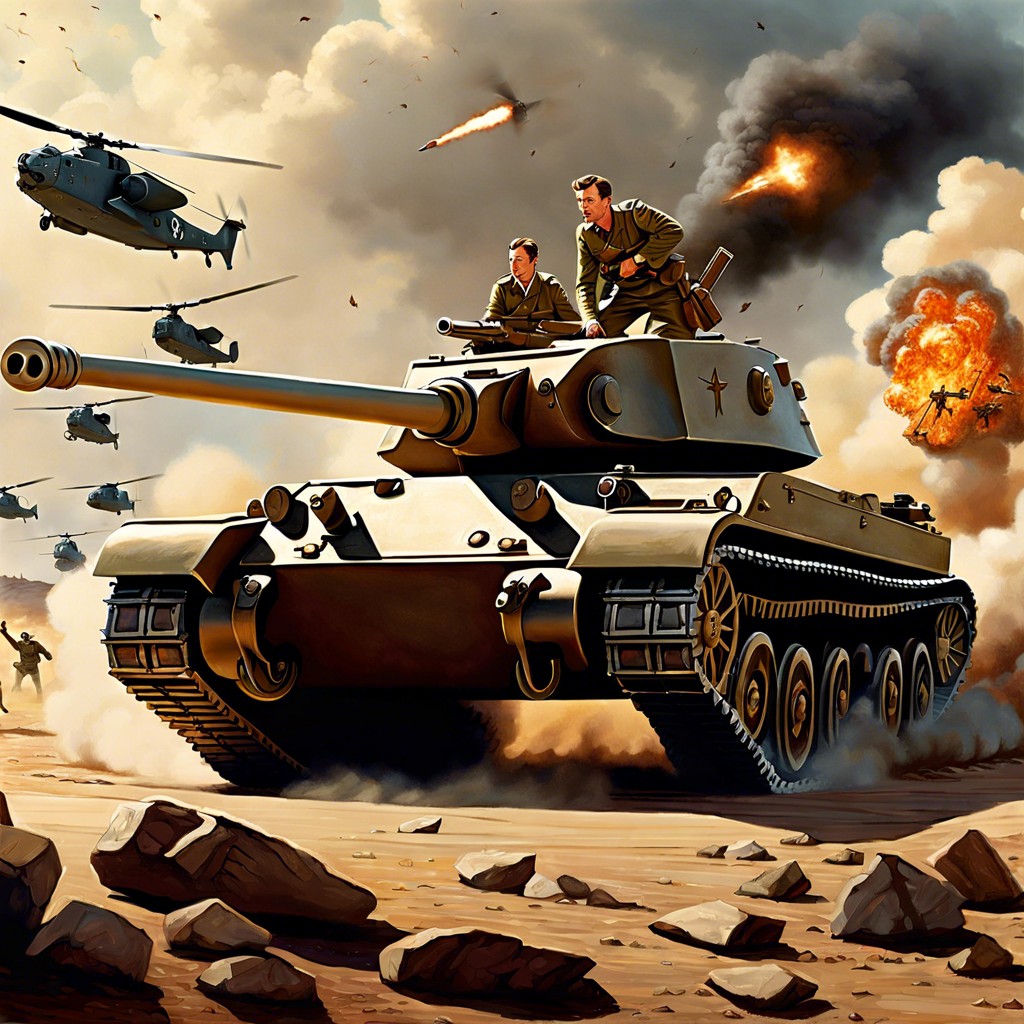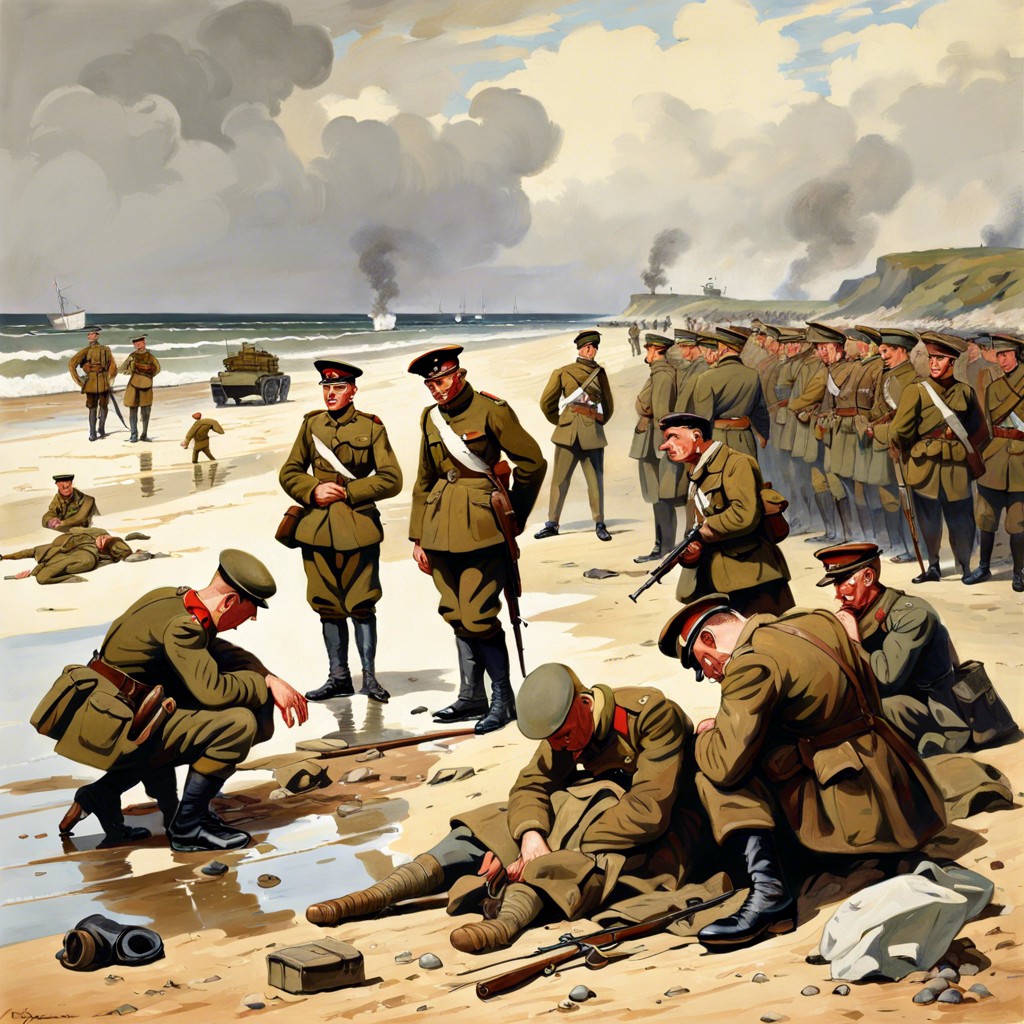This article will examine the potential impact and ramifications if Mexico had joined World War I.
Picture this: Mexico throwing its sombrero into the colossal fray of World War I, with a drama-packed cascade of consequences. Would its motivations have merely been a giant “Olé!” to old grudges, or something more? How would this shake up the Western Front, U.S.-Mexico relations, and even the peso? This whirlwind will unveil the hilariously unpredictable, yet sobering impacts on economics, politics, and society in a beautifully chaotic ballet. Buckle up for a wild tour through the alternate history of Mexico stepping into the Great War!
Key takeaways:
- Territorial disputes and revenge fuel Mexico’s potential involvement.
- Impact on Western Front includes new tactics and morale boosts.
- Mexican entry to WWI would ignite drama in U.S.-Mexico relations.
- Wartime economic boom but long-term instability on the horizon.
- Post-war Mexico could see nationalism rise and political reform.
Possible Motivations for Mexico to Join the War

Imagine Mexico thrown into the chaotic fray of World War I, a twist worthy of an alternate reality novel! The motivations behind such a decision could be surprisingly compelling.
First, there’s the good ol’ spirit of revenge. Tension between Mexico and the United States simmered thanks to territorial disagreements and border clashes. Throw in a dash of national pride and getting back at an overbearing neighbor could have been a tempting prospect.
Economically, the allure of lucrative military contracts and potential territorial gains might have made the Mexican government lick its chops. War economies tend to boom, even if just temporarily. Why not trade sombreros for soldier hats for a bit of wealth?
On a diplomatic front, allying with the Central Powers might have provided Mexico with international clout. Imagine striking deals and shaking hands with European powers. Who wouldn’t want a seat at that gilded table?
Lastly, domestic distractions! Wars have an uncanny ability to unite divided nations under a common cause. Mexico, plagued by internal conflicts and political instability, might have seen war as a chance to rally its citizens and bolster national unity.
In hindsight, these motivations offer a cocktail of both risky and enticing possibilities, perfect for shaking up history as we know it.
Impact On the Western Front
Imagine the trenches of the Western Front suddenly infused with a vibrant, siesta-loving energy! Mexican forces could have introduced new strategies and techniques. Maybe a surprise cavalry charge or even some innovative tactics using unfamiliar terrain knowledge.
With Mexico in the fray, German forces might have had a bit more on their plate. Picture the impact on the already stretched German resources. They would need to counteract new adversaries hailing from a different continent entirely.
Allies, on the other hand, would gain a morale boost with fresh troops. The colorful addition of Mexican culture could have also brought unique logistical contributions, from cuisine to medical practices.
Mexican forces, having had different military experiences, could adapt quickly. Their influence might have reshaped portions of the battlefield or pushed forward stagnant fronts. And who knows, maybe a Mexican Mariachi band could make a surprise appearance on the battlefield, lifting spirits with music amidst chaos.
Influence On U.S.-Mexico Relations
Imagine the neighborly drama. If Mexico had slid into World War I, you can bet U.S.-Mexico relations would’ve been spicy. First off, the Zimmerman Telegram would’ve taken a twist. Rather than just a what-if scenario, Germany’s proposal to Mexico to join forces against the U.S. might’ve sparked a whole new south-of-the-border crisis.
Consider the border skirmishes. Tensions, already high from the Mexican Revolution, would’ve boiled over. Picture this: American troops lining up not just because of the war in Europe but also keeping an eye on Mexico.
Trade? Forget it. The U.S. and Mexico would’ve slapped tariffs on each other’s goods faster than you can say “Tequila.” Economic strains could lead to smuggling galore and a black market boom, making Prohibition look like an amateur hour.
And let’s not forget the social implications. The influx of Mexican immigrants into the U.S. might’ve been met with more suspicion and paranoia, rather than the rich cultural exchange we’re familiar with today.
So, a Mexican entry into WWI would likely turn U.S.-Mexico relations into a real-life telenovela, full of drama, tension, and unexpected plot twists.
Economic Implications for Mexico
Diving into the economic landscape, Mexico’s involvement in WW1 would have certainly painted a curious picture. Imagine the sudden demand for armaments and supplies; factories working around the clock, churning out everything from bullets to blankets. Jobs, jobs, jobs—everywhere!
However, with great production comes greater expenses. Funding a war isn’t cheap; expect taxes to soar like tortillas in a hot-air balloon. Currency might get a tad jittery, dancing up and down with inflation, which could make pesos feel like they’re playing hide and seek.
Then there’s trade. Wartime alliances could potentially open doors to new markets. Or, they could slam shut others, depending on who’s on the friend-or-foe list. Farmers might struggle with exporting their goods, while importers might face more hurdles than a marathon.
While the short-term boost in employment and industry sounds appealing, long-term financial stability might be akin to juggling piñatas filled with nitroglycerin. One wrong move, and kaboom—economic calamity.
Long-term Consequences for Mexican Politics and Society
Post-war Mexico might have found itself on a rollercoaster of political dynamics. One possible scenario: heightened nationalism. War participation often swells national pride, so think of a country suddenly basking in heroic tales.
Next, the ramifications for social structure could be immense. Veterans return as both heroes and catalysts. They demand better treatment, jobs, and rights. This often leads to significant social reforms, shaking up the status quo.
Economic strain from war spending could fuel political unrest. Mexicans might find themselves rallying for economic justice. This might ignite movements demanding better wages, labor rights, and land reforms.
Meanwhile, international alliances forged during wartime could reshape internal politics. Imagine new treaties influencing policies, further opening Mexico to global trade and cultural exchange. This newfound connection might make isolationist views less popular, fostering a more outward-looking national perspective.
Little would remain unchanged. Politics, society, even the very essence of daily life might get an exhilarating makeover.




